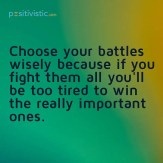When I was growing up, I wanted to be a leader for the wrong reasons. I wanted to be a leader because I thought that was the person in charge. Then, with maturity and many failed leadership experiences, I began to see the heavy burden that comes with the leadership role. Leadership even became something I avoided for a while. This is because I came to believe leadership is not about power, but all about service. Service to people, service to the community, service to a greater cause.

This I believe…
Leadership is about knowing the people you aspire to lead and being willing to make the sacrifices necessary for their success. It is about filling their cups, taking their burden, celebrating them whenever possible, and having a deep enough relationship with them that you can tell them things they need to hear to improve without damaging the connection.
Leadership is about recognizing that bad leadership will motivate people to be different, while good leadership will motivate people to be more. Leaders must show grace even when none is given in return. Walking the walk, inspiring hope, constant reflection and always considering the “what ifs” for improving the human condition for those they serve are the traits of a good leader.
Leadership is about having a continually developing a vision of where your organization needs to go to make the world a better place, and having the skills to continually learn and grow to adjust and correct the course to get there. It really is never about the destination. Rather, it is always about the journey and the experiences that shape us along the way.
Leadership is about modeling risk-taking. Sometimes risk-taking results in failures. But part of that modeling is getting back up, learning from mistakes, and starting again with a new perspective. Even more important is recognizing that sometimes you have big wins when big risks pay off. But even then, you don’t stop. You celebrate the moment and then form your next plan…you keep learning….you keep growing…you keep getting better rather than settling for good enough.
Leadership is about developing the capacity of others. True leaders recognize that the most important missions are too big for any one person. Therefore they teach and model and release responsibility so that a legacy exists long beyond the leader’s time. Leaders recognize when the required path is uncomfortable or hard but build on the strengths of those they lead to accomplishing the task despite the challenges. Leaders grow leaders, so the vision expands and has a greater impact of good.
Leadership is about being humble and giving all the credit to those you serve when things go right, but a true leader is willing to be accountable when things go wrong. This type of leader continually reflects on what they may have done to set others up for success so it can be repeated, but also considers the deficits in their actions that caused the failure and is willing to adjust their actions so that it doesn’t happen again.

Leadership can be exhausting. It can be thankless and focal point of blame when things don’t go right. Sometimes it would simply be easier to say, “This is how it’s going to be done because I said so.” Sometimes you want to close your door, or say “Not now.” You want to say, “What about me?” Sometimes, it can even be, “I give up.” Then I remember this is not leadership and start again.
This I believe, when done right, leadership cultivates others who are willing to serve and inspire others and this is how you make the world better.
Thank you to N2 Learning for this experience that helped define who I am as a leader, my partner in the experience Donna, my district administrators for this amazing opportunity, my constant support and mentor Sherry, for my incredible Degan Community who make me want to be better every day.
This I Believe
Like this:
Like Loading...
 Foundation Campus Team Grant that helped forge a relationship that continues to this day with Norma Jackson, and with the help of the LF Foundation Principal as Leader of Professional Learning grant, become a Ruby Payne Certified Trainer and engage in deep study learning about grit and growth mindset that have helped my staff bridge a gap for students who don’t always believe in themselves in the school setting. I have met the amazing Shirley Hord, Marcia Tate, Jim Knight, and Michael Fullan, not to mention hearing countless other incredible forces in education.
Foundation Campus Team Grant that helped forge a relationship that continues to this day with Norma Jackson, and with the help of the LF Foundation Principal as Leader of Professional Learning grant, become a Ruby Payne Certified Trainer and engage in deep study learning about grit and growth mindset that have helped my staff bridge a gap for students who don’t always believe in themselves in the school setting. I have met the amazing Shirley Hord, Marcia Tate, Jim Knight, and Michael Fullan, not to mention hearing countless other incredible forces in education. member. It is two weeks away from home (for the convention prior and the one in Dallas, which anyone who knows me, knows is beyond my comfort zone). It is long days on your feet and doing the legwork so that the thousands of attendees get to engage in amazing learning.
member. It is two weeks away from home (for the convention prior and the one in Dallas, which anyone who knows me, knows is beyond my comfort zone). It is long days on your feet and doing the legwork so that the thousands of attendees get to engage in amazing learning.





















